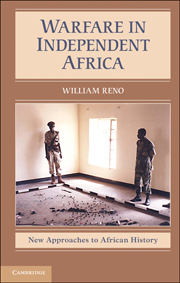2 - Anti-Colonial Rebels
Published online by Cambridge University Press: 05 June 2012
Summary
Between 1961 and 1974 the anti-colonial rebels considered in this chapter fought in the Portuguese colonies of Guinea, Mozambique, and Angola. Majority rule rebels who fought the white minority–dominated governments in other parts of southern Africa are the subject of the next chapter. These two categories of rebels share many features. Nowhere did armed groups win a decisive military victory, although the Partido Africano da Independência da Guiné e Cabo Verde (PAICG) came closest, capturing about 80 percent of Portuguese Guinea by the time Guinea (Bissau) declared unilateral independence in 1973. White minority rule in Rhodesia ended with rebels in control of about a third of the country's territory. Right up to the end of the South African apartheid regime, the ANC had difficulty coordinating action inside the country. International diplomatic and material support for rebels reflected the global condemnation of colonialism. Also facing the intensification of international political isolation and ever-tightening economic sanctions, the white minority regimes recognized that the apartheid system was no longer tenable and held democratic elections that ultimately led to a black majority government in 1994. Thus international support for these rebels and pressure on the governments of target states played decisive roles in shaping the path for rebel victories.
- Type
- Chapter
- Information
- Warfare in Independent Africa , pp. 37 - 78Publisher: Cambridge University PressPrint publication year: 2011
- 1
- Cited by

